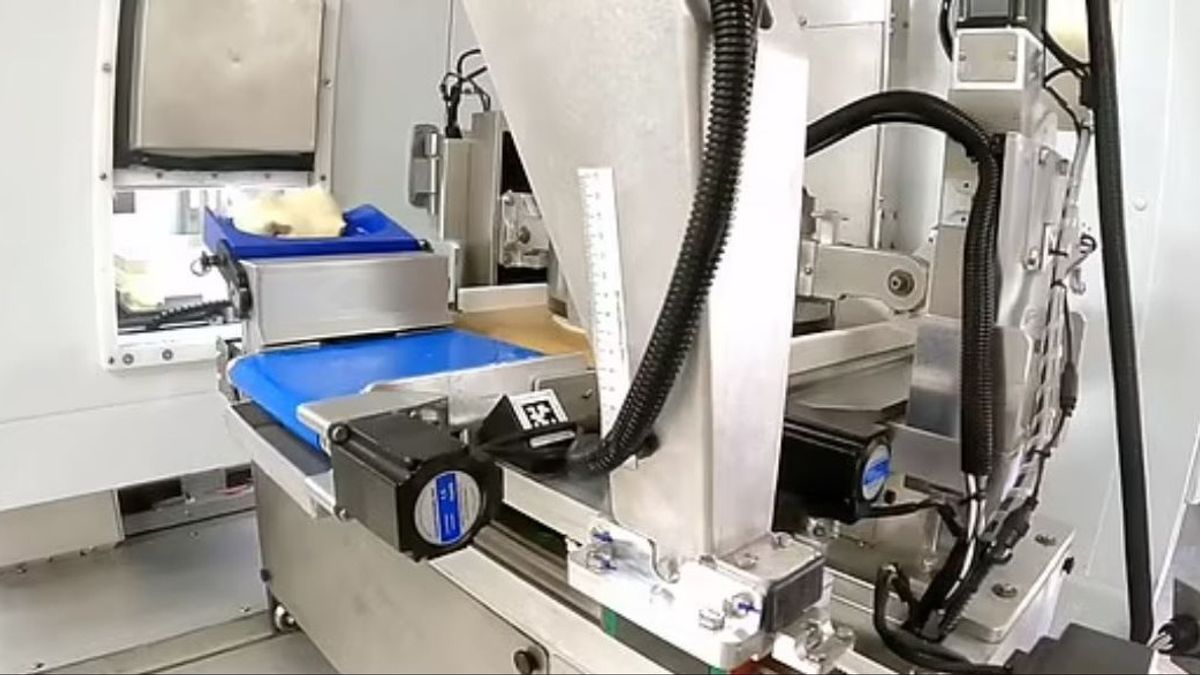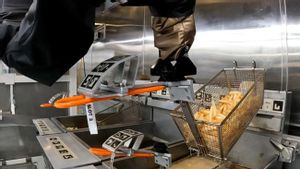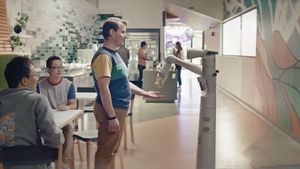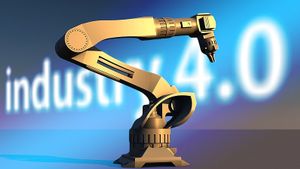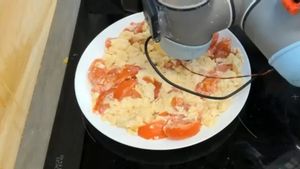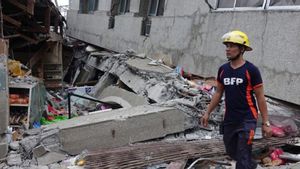JAKARTA - A group of former SpaceX employees are predicted to disrupt the US$45 billion pizza industry this fall with the help of a pizza-making robot.
Stellar Pizza, which is the brainchild of former SpaceX engineer Benson Tsai and former SpaceX chef Ted Cizma, will offer perfectly cooked pizza made by machine in about five minutes.
They produce pizzas at affordable prices, per 12-inch pie for around 7 to 12 US dollars and customers can choose from up to ten different toppings.
The machine can turn dough balls into pies and divide the sauce and toppings in a very even amount. The robot chef is designed with internal electronics, controlled by custom software and will be placed inside the truck.
In a video showing the entire process, balls of dough are transferred to a dough press which unfolds and flattens them into a symmetrical pie shape. Then, the dough moves to the topping line system, where topping ingredients such as sauce, cheese, pepperoni and other toppings are added. Finally, the pizza is transferred to one of four ovens for cooking.
Human employees will be on hand to deliver finished pizzas to customers. Stellar Pizza, which recently received a $16.5 million investment in Series A funding from renowned musician Jay-Z, will debut this fall at the University of California.
“Our founders wanted to create a business that would be groundbreaking and disruptive, but one that could serve the greater good by delivering superior products at reasonable prices and available to all,” Cizma told The Manual.
At SpaceX, Cizma reportedly got a mandate from founder Elon Musk to build a restaurant in the middle of his 'badass' rocket factory.
His business has grown to have a staff of 200 and serve 1.4 million meals a year across Musk's space company locations.
"One thing that stuck with me is that each dish you prepare is no more or less important than the last meal you made, or the next," he says. “When you serve 5.000 meals a day, it has a certain meaning. At that scale, efficiency is an important consideration.”
According to Cizma, pizza dough is made in-house and fermented for several days to give it more complexity and flavour.
“Stellar fits into the pizza industry as a new brand that promises fast, fresh, and affordable pizza,” Tsai told Pizza Today. “As the brand grows, Stellar Pizza strives to be the clear choice for every hungry consumer who craves delicious pizza.”
Amazingly, the pizza robot currently has the capacity to make 420 pies per day, far beyond the capabilities of a human.
Cizma also has some tips for anyone who cooks pizza without the help of a robot. "Don't skimp on the ingredients," he told The Manual. "Just like computers. Garbage in, garbage out.”
Stellar is one of the few pizza-robot companies. New Jersey-based PizzaHQ has turned a traditional pizzeria into a robotic one and has expansion plans. Picnic Works is a company that leases a modular assembly line of picnic pizza stations that can produce up to 100 pies per hour with only one person supervising them.
Restaurant robots in general have had few favorable moments as the hotel industry faces high inflation, demands for higher wages from workers and, in some cities, lower pedestrian paths thanks to the popularity of working from home (WFH).
VOIR éGALEMENT:
Robotic chefs who can cook fries, flip burgers, and even make tortilla chips are increasingly being tested by brands like Chipotle, Jack in the Box and Wing Zone.
Miso Robotics, a California-based company, also built a kitchen bot called Flippy that cooks 300 burgers per day and then evolves into a robot that makes a second version of French fries.
The robot, which has been in development for several years, uses a combination of cameras, artificial intelligence, and predictable mechanical movements to perform repetitive tasks that service workers might find tedious.
“We recognize that robotic solutions to be real solutions for our customers, it must have a very high return on customer investment. Which means taking a lot of labor off the desk," Miso Robotics CEO Mike Bell told the Washington Post.
Robots that can make food are just the latest type of automation used in America's 200.000 fast-food locations, which have now implemented contactless kiosks and mobile payment systems.
The English, Chinese, Japanese, Arabic, and French versions are automatically generated by the AI. So there may still be inaccuracies in translating, please always see Indonesian as our main language. (system supported by DigitalSiber.id)
